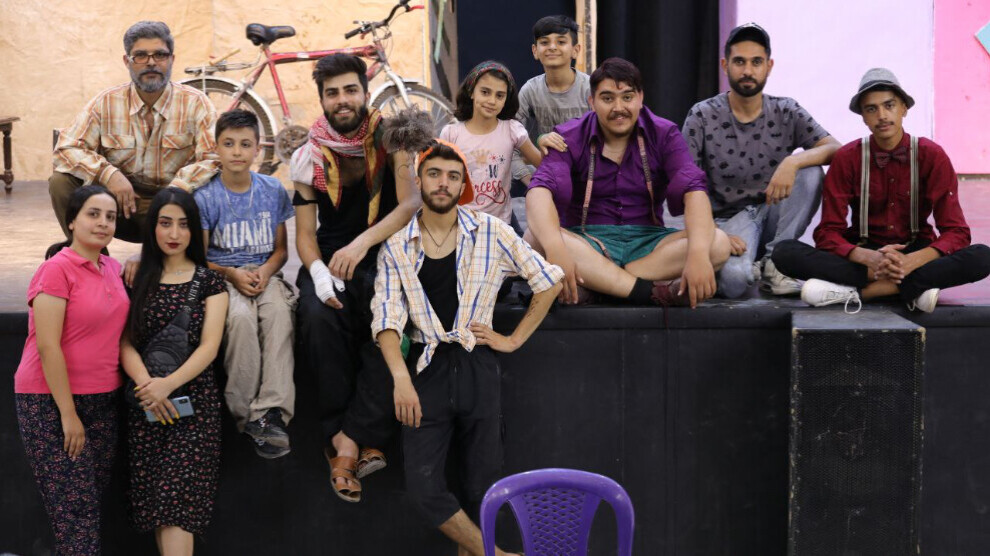The Theatre Commune shares the joy and pain of people and becomes their voice
The North-East Syria Theatre Commune shares the joy and pain of the people and becomes their voice. The commune has trained 108 actors so far.
The North-East Syria Theatre Commune shares the joy and pain of the people and becomes their voice. The commune has trained 108 actors so far.

Kurdish theatre performances were promoted since the beginning of the Rojava Revolution, and eventually theatre groups gathered under the roof of the Theatre Commune in 2017 and a more comprehensive organization was made in 2019.
The prohibition of the Kurdish language in Syria meant culture and art could not be expressed in that language. For this reason, the Kurdish people could not stage plays in their own language. Many Kurds took part in theatre plays that were not in their mother tongue in state theatres.
With the 19 July Revolution things changed. The proclamation of the Autonomous Administration of Northern and Eastern Syria in 2012, meant arts and cultures could finally develop in different languages, and Kurdish in particular.
Different companies gathered under the roof of the Theatre Commune in 2017 and a more comprehensive organization was established in 2019. The Commune, which devotes most of its time to educational activities, has so far opened 9 courses, 5 of which are in Cizîre, three in Fırat and one in Shehba. The Commune teaches voice use and diction, use of body language, script and directing.
Theatre workshops in Qamishlo and Dêrik
Some 108 theatre actor candidates are being trained, but education is not limited to only Kurdish, and is given in Arabic too. 26 teachers are involved in training activities. Receiving support from experienced theatre actors, the Commune is considering enriching its education projects for directors so that teachers can be even more creative. Workshops were organized in Dêrik and Qamishlo. Students graduating from both workshops prepare for the stage.
Five theatre communes, 13 in the Cizîrê Region, 8 in the Fırat Region, and two children's groups in the Shehba Region, are involved in cultural and artistic activities. The theatre commune, which has organized 5 festivals so far, is based on the unity of the peoples in the festivals; Kurdish, Arab, Turkmen, Circassian, Assyrian and Armenian people participate in the festivals with their own language, costume and culture.
Ednan Ehmed Mistefa, one of the directors of Northern and Eastern Syria Theatre Commune, told ANF that “education is essential to drive society to theatre, to make Kurdish theatre visible and to introduce the democratic nation project to the people. Education is a must. Both technical and ideological training is provided. We aim to develop the members of the commune intellectually and thus convey the principles of the revolution to both the members and society.”
New projects for teachers
Pointing out the importance of the role of teachers, Ednan continued: “The more the teacher develops himself, transfers his knowledge and deals with the theatre candidates on a one-on-one basis, the more the theatre develops. The teacher should organize the existing potential. The success of a group depends on the success of the teacher. We are preparing for new projects to make teachers more competent.”
Ednan Ehmed Mistefa said that theatre “is important because it contributes to showing the joy and pain of society. Making changes in social backwardness is correcting the wrong. Theatre comes face to face with the public and gives important messages to the audience. The main purpose of theatre is to determine a social issue and to raise the awareness of the public within the framework of this issue. Therefore, it is against the state system and is the voice of the people. We, and our theatres, work on the philosophy of the Democratic Nation and organize in line with this philosophy. It is in the nature of the theatre to be free, so the freedom of the people is taken as a basis.”